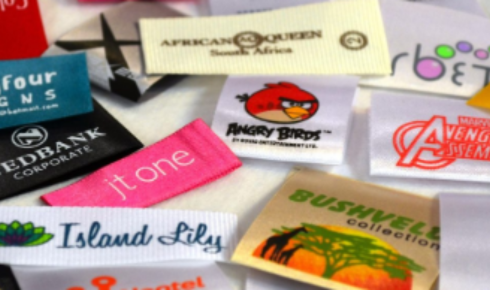
fabric labels
Fabric labels are essential components for clothing manufacturers, providing both functional and marketing benefits. These small yet significant tags are sewn into garments to convey critical information such as brand name, care instructions, and material content.
While fabric labels may seem like a simple addition, they offer several advantages. This article will explore the key benefits of fabric labels for clothing manufacturers, shedding light on why they should be considered a vital part of any garment.
Enhanced Brand Identity
One of the most significant advantages of fabric labels is their ability to strengthen a brand’s identity. Clothing manufacturers can use fabric labels to showcase their logo or company name, making their products instantly recognizable.
Over time, these labels create a connection between the consumer and the brand, leading to brand loyalty. By investing in high-quality fabric labels, manufacturers can ensure that their products stand out in a crowded market.
Clear Consumer Information
Another crucial benefit of fabric labels is that they provide clear and essential information to the consumer. The label can include washing instructions, fabric composition, size, and other relevant details.
This information is necessary for customers to care for their garments properly and maintain the product’s longevity. Clear labeling reduces confusion and enhances the consumer’s overall experience with the product.
Compliance with Regulations
In many countries, it is legally required for clothing manufacturers to include specific information on their garments. Fabric labels help ensure that manufacturers meet these legal standards. Information such as the country of origin, material content, and safety warnings must be clearly displayed according to regulations.
By adhering to these legal requirements, manufacturers avoid potential fines or legal issues. Fabric labels, therefore, not only benefit consumers but also help manufacturers stay compliant with the laws governing the apparel industry.
Durability and Longevity
Fabric labels are also known for their durability. Unlike paper labels, which can tear or fade over time, fabric labels are made from materials like cotton, satin, or polyester, which can withstand regular wear and washing. This durability ensures that the label remains legible and intact throughout the life of the garment.
In addition to providing long-lasting brand recognition and care instructions, fabric labels can withstand the rigors of industrial laundering, making them an ideal choice for manufacturers aiming for longevity in their products.
Cost-Effective Marketing Tool
While fabric labels are a small addition to a garment, they offer an excellent return on investment when it comes to marketing. Including a high-quality label with your product helps promote your brand with minimal effort.
It’s a cost-effective way to advertise your brand, as the label acts as a constant reminder of your company every time the product is worn. This passive form of marketing can be especially effective when your brand has a loyal customer base that wears your garments frequently, spreading awareness without additional advertising costs.
Conclusion
Fabric labels play a vital role in the success of a clothing manufacturer. They enhance brand identity, provide important information to consumers, ensure compliance with legal regulations, and offer long-term durability.
In addition to these practical benefits, fabric labels also serve as a cost-effective marketing tool. By investing in quality fabric labels, manufacturers can improve the consumer experience, build brand recognition, and ultimately increase customer loyalty.







